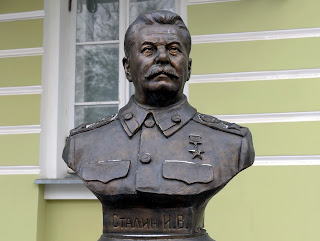After many years of working with churches that find themselves in conflictual situations, I have concluded that there are six non-negotiable principles for a successful outcome.
First, an outside facilitator is usually necessary. The nature of conflict is that people take sides so it becomes very difficult for anyone from within to play the role of a neutral mediator. In fact, the larger the conflict the more critical it is that the individual you bring in is trusted by both sides to have the best interests of the church at heart. The sooner you bring someone in when it is clear that the situation is dangerous the better.
Second, the issues that are fueling the conflict need to be brought into the light. Conflict thrives in the shadows, in gossip, in cliques, in assumptions and behind the scenes. Bringing all the competing agendas, attitudes and positions into the light and allowing all members of the congregation to understand what is being said, what is happening and what the issues are takes the mystique out of the situation and allows everyone to respond from a position of knowledge. It also removes the power of those who have an agenda but have not been willing to make it public but have instead been putting on pressure from behind the scenes. Getting everything on the table allows all stakeholders to understand what is going on and to have a voice in solving the issues. Ironically, those who are most vociferous in their opinions overplay those who agree with them when in fact, if all facts were known, the majority would not agree.
Third. Reconciliation is always preferable to disunity. This is actually a hard concept for many who have taken a position in church conflict. First, our natural tendency is to take a hard line and once we have told others about our own line-in-the-sand it is humbling to change our position. Second, the longer conflict goes on, the more we see the members of the opposing side as evil, dishonest, disingenuous, people with bad motives and once we demonize people it is hard to ever think that reconciliation is possible.
To not be willing to consider reconciliation is to make a mockery of God's reconciliation with us and His call for us to be reconcilers. Speaking of church conflict, this is what Paul had to say to the Corinthians. "I appeal to you brothers, in the name of our Lord Jesus Christ, that all of you agree with one another so that there may be no divisions among you and that you may be perfectly united in mind and thought (1 Corinthians 1:10)."
In Ephesians 4:1-6 Paul writes, "As a prisoner for the Lord, then, I urge you to live a life worthy of the calling you have received. Be completely humble and gentle; be patient, bearing with one another in love. Make every effort to keep the unity of the spirit through the bond of peace. There is one body and one Spirit - just as you were called to one hope when you were called - one Lord, one faith, one baptism; one God and Father of all, who is over all and through all and in all." Having said that, I acknowledge that sometimes it is not going to be possible to reconcile and stay together. Sometimes it means that we part ways and speak well of one another.
Fourth, ground rules need to be established. One of the most incendiary fuels in all conflict is the absence of ground rules - what is acceptable and what is not. For a list of the ground rules that I recommend, see my blog, Negotiating church conflict in a healthy manner. Or if you want to keep it very simple, look back at the passage in Ephesians 4:1-6 where he says be completely humble and gentle; be patient, bearing with one another in love. Make every effort to keep the unity of the spirit through the bond of peace. When you think about it, these characteristics are almost always lacking when conflict is taking place. What gets in our way? Pride, wanting to get our own way, anger, and our emotions.
Five, you probably will not convince everyone. There are people who don't want to reconcile. There are people whose pride is far greater than their humility and they have no desire to seek a win/win solution. In working with churches in conflict, I don't do very much to try to convince the unconvincible even if they have the loudest voices. I am looking for people of peace and reason who are willing to work together to see the church come together in unity. This does not mean that the issues that have caused disunity are swept under the rug. To the contrary, as principle two states, they are all on the table and those that need to be addressed are addressed. To do that successfully, however, it requires men and women of peace and reason, whose personal agendas do not cloud their emotions.
Who is most likely to leave in church conflict? Those who have taken a hard stand and cannot or will not compromise that stand. Frankly, it is good for them to leave because they will simply contribute to ongoing conflict if they are not willing to come together with the rest of the congregation.
Sixth: It is a process. Church conflict does not start overnight and it does not get settled overnight. It may take a year in some cases to bring the church back to health. The benefits of doing so far outweigh the trauma of either a church split (which damages churches for years to come) a powerplay by a faction in the church (which causes huge trauma to a church and a significant lack of trust) or not dealing with it at all which dooms the church to later issues.
What is needed for a healthy process is a willingness of the congregation to work together recognizing that how they handle their differences will either enhance or diminish the reputation of Jesus. If His reputation is at stake - and it is - I will do all I can to enhance it.
Additional blogs on church conflict:
Negotiating church conflict in a healthy manner
8 Reasons in my experience that churches experience major conflict
Church conflict: Finding the core issue and the common source
Seven things to understand about church conflict
Church conflict, christian character and the reputation of Jesus













